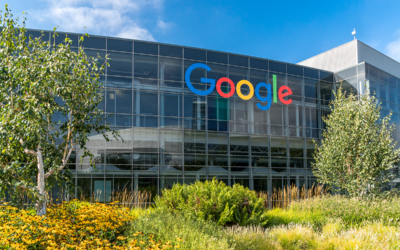What is Semantic SEO?
Semantic SEO is a nuanced approach to content creation that goes beyond traditional keyword targeting. It focuses on enhancing the relationships and meanings between words and phrases to align closely with users’ search intent. This practice is especially crucial in today’s digital landscape, where precision and context are paramount for capturing and retaining audience attention.
- Contextual Understanding: Semantic SEO prioritizes understanding the context and themes surrounding keywords rather than the keywords alone.
- Intent Matching: Analyzing how different terms relate aims to better match the content with the user’s search intent.
- Content Relevance: This leads to the production of content that search engines recognize as more relevant to specific queries, increasing the content’s visibility and utility.
By employing Semantic SEO, content creators can craft material that addresses direct queries and provides comprehensive information that users might find valuable. This approach helps create a more engaging user experience, enhancing the likelihood of satisfying user needs and improving site metrics like bounce rates and time-on-page. The strategic use of Semantic SEO ensures that content attracts and effectively serves the target audience.
The History of Semantic SEO
The history of Semantic SEO traces back to a pivotal shift in search engine technology that began in the early 2000s. Search engines started to evolve their algorithms to focus more on the context and meaning behind user queries rather than just the frequency of keywords. This evolution aimed to enhance the quality and relevance of search results.
- Early Developments: Before 2013, search engines had already started to consider content semantics, but the strategies were less sophisticated.
- Hummingbird Update: The major turning point came with Google’s Hummingbird update in 2013, which significantly advanced natural language processing capabilities and the interpretation of search intents.
- Focus on Intent: Since the Hummingbird update, Semantic SEO has become a core component of SEO strategies, focusing on understanding and matching the searcher’s intent rather than merely targeting keywords.
This shift towards Semantic SEO represented a fundamental change in how SEO experts approach content strategy. Instead of optimizing for keywords alone, the focus expanded to include the broader context of how those keywords are used in natural conversations. This approach helps create content that aligns more closely with user needs and behaviors, leading to better user experiences and more effective SEO outcomes. This historical development has made Semantic SEO indispensable to modern digital marketing.
Balancing Semantic SEO with Other SEO Strategies
Balancing Semantic SEO with other SEO strategies is essential to achieving a comprehensive and effective online presence. While Semantic SEO focuses on content relevance and user intent, it must be supported by robust technical optimization, user experience enhancements, and strategic link building.
Technical Optimization: Ensuring that a website is technically sound is fundamental. This includes optimizing site speed, ensuring mobile-friendliness, and implementing structured data. These elements help search engines crawl and index a site more effectively, which is crucial for achieving high rankings.
User Experience (UX): A semantically optimized content strategy should go hand in hand with an outstanding user experience. This includes intuitive navigation, fast loading times, and responsive design. Enhancing UX supports SEO efforts and increases user engagement and retention, which are important metrics for search engines.
Link Building: While Semantic SEO enhances content relevance, link building establishes authority and trust. Acquiring high-quality backlinks from reputable sources signals to search engines that other websites view your content as valuable, boosting your site’s credibility and ranking.
Integrating these strategies with Semantic SEO ensures that a website attracts visitors with relevant, engaging content and offers them a smooth and rewarding browsing experience. This balanced approach maximizes the potential for higher rankings and better user engagement, making it crucial for any successful SEO campaign.
Semantic SEO in Practice
To effectively implement Semantic SEO, businesses should create content that thoroughly explores and connects the topics relevant to their industry. For example, a health and wellness site should not only talk about ‘weight loss’ but also include related topics such as ‘nutrition plans,’ ‘exercise routines,’ and ‘mental well-being.’ By covering these interconnected topics, the site can offer more comprehensive content, which search engines might recognize as more authoritative and relevant.
Semantic SEO and User Experience
Enhancing user experience is at the heart of Semantic SEO. This strategy involves structuring content so it answers direct queries and provides additional information that may interest the user. This approach can lead to higher engagement levels, as users find the content helpful and enriching. As search engines increasingly value user engagement metrics, incorporating Semantic SEO becomes crucial in developing content that resonates with users and performs well in search results.
Why Agencies Should Embrace Semantic SEO
Avoiding Overemphasis on Semantic SEO
While Semantic SEO is vital to a modern SEO strategy, SEO practitioners must maintain a balanced approach to optimizing websites. Overemphasizing semantic SEO without paying equal attention to other crucial aspects can lead to suboptimal outcomes.
Comprehensive Strategy: Effective SEO encompasses a variety of tactics, including technical SEO, content marketing, user engagement, and link building. Each element is critical to a website’s overall performance and search engine rankings.
Technical SEO Importance: Technical SEO, such as site speed optimization, mobile responsiveness, and secure connections (HTTPS), is fundamental. Neglecting these aspects can impair site visibility and user experience, regardless of how well the content is optimized semantically.
User Experience: Similarly, providing a stellar user experience is paramount. Websites should be easy to navigate, visually appealing, and interactive to keep users engaged. Focusing solely on Semantic SEO can lead to disregarding user experience, which is crucial in retaining visitors and converting them into customers.
Holistic Content Strategy: Content should be rich in semantic relevance and varied and engaging to cater to different user intents. Diversifying content types and optimizing for user engagement metrics are essential practices that should be balanced with Semantic SEO.
By integrating Semantic SEO with a well-rounded SEO strategy, practitioners can avoid pitfalls such as poor site performance and unsatisfactory user experience. This approach ensures that all areas of SEO are addressed, leading to sustained, comprehensive success in search engine rankings and user satisfaction.
Promoting a Comprehensive SEO Strategy with Sympler
Sympler advocates for a balanced and holistic approach to SEO, providing tools and analyses that help businesses integrate Semantic SEO effectively while ensuring all other aspects of their digital presence are optimized. By utilizing Sympler’s comprehensive services, companies can improve their Semantic SEO practices and enhance other critical areas, ensuring a robust and successful online strategy.
Are you ready to enhance your digital marketing strategy?
Reach out to Sympler today for a free SEO analysis and digital marketing assessment. Discover how a comprehensive approach incorporating Semantic SEO and other vital strategies can significantly improve your online presence and engagement. Contact us now to learn more about how our services can help you achieve digital marketing success.




